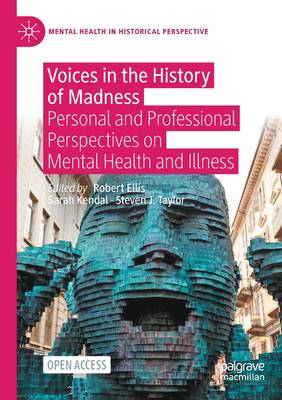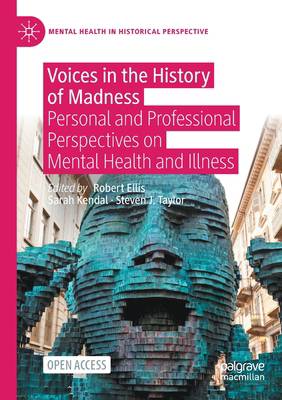
Je cadeautjes zeker op tijd in huis hebben voor de feestdagen? Kom langs in onze winkels en vind het perfecte geschenk!
- Afhalen na 1 uur in een winkel met voorraad
- Gratis thuislevering in België vanaf € 30
- Ruim aanbod met 7 miljoen producten
Je cadeautjes zeker op tijd in huis hebben voor de feestdagen? Kom langs in onze winkels en vind het perfecte geschenk!
- Afhalen na 1 uur in een winkel met voorraad
- Gratis thuislevering in België vanaf € 30
- Ruim aanbod met 7 miljoen producten
Zoeken
Voices in the History of Madness
Personal and Professional Perspectives on Mental Health and Illness
€ 244,45
+ 488 punten
Omschrijving
This book presents new perspectives on the multiplicity of voices in the histories of mental ill-health. In the thirty years since Roy Porter called on historians to lower their gaze so that they might better understand patient-doctor roles in the past, historians have sought to place the voices of previously silent, marginalised and disenfranchised individuals at the heart of their analyses. Today, the development of service-user groups and patient consultations have become an important feature of the debates and planning related to current approaches to prevention, care and treatment. This edited collection of interdisciplinary chapters offers new and innovative perspectives on mental health and illness in the past and covers a breadth of opinions, views, and interpretations from patients, practitioners, policy makers, family members and wider communities. Its chronology runs from the early modern period to the twenty-first century and includes international and transnational analyses from Europe, North America, Asia and Africa, drawing on a range of sources and methodologies including oral histories, material culture, and the built environment.
Chapter 4 is available open access under a Creative Commons Attribution 4.0 International License via link.springer.com.
Chapter 4 is available open access under a Creative Commons Attribution 4.0 International License via link.springer.com.
Specificaties
Betrokkenen
- Uitgeverij:
Inhoud
- Aantal bladzijden:
- 430
- Taal:
- Engels
- Reeks:
Eigenschappen
- Productcode (EAN):
- 9783030695613
- Verschijningsdatum:
- 13/05/2022
- Uitvoering:
- Paperback
- Formaat:
- Trade paperback (VS)
- Afmetingen:
- 148 mm x 210 mm
- Gewicht:
- 539 g

Alleen bij Standaard Boekhandel
+ 488 punten op je klantenkaart van Standaard Boekhandel
Beoordelingen
We publiceren alleen reviews die voldoen aan de voorwaarden voor reviews. Bekijk onze voorwaarden voor reviews.








